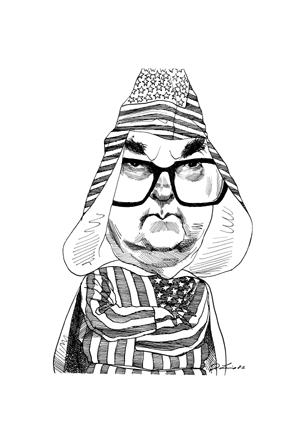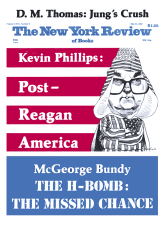The question for the political analyst is no longer whether Ronald Reagan will succeed or fail. He is failing, and attention must now focus upon the ramifications and dimensions of that failure. What kind of response can we expect from Reaganites committed to preserving a center-right political coalition? And will the present conservatism of Middle America, a conservatism that in my view already possesses a strong radical component, metamorphose into a radicalism of an extreme sort?
It didn’t take a genius to predict on Inauguration Day that Reaganism would unravel. The omens were hardly bright for the nostalgic restoration of Reagan’s ideology, or for the associated vulnerability and volatility of the electoral coalition subscribing to that ideology, or for Reagan’s patently contradictory fusion of monetarism and supply-side economics, or for a presidential regime announcing that it would combat the global currents of inflation with maxims out of McGuffey’s Reader and Calvin Coolidge.
Any observer can see that both Ronald Reagan and Margaret Thatcher have been trying to re-create the halcyon days of American and British expansion. But the electoral indignation that helped to elect Reagan in the United States was something quite different from what the British voters felt when they plunked for Thatcher, a Tory politician. In short—and the full genealogical details are available in thousands of political parish registers—the Reagan Revolution, the rise of the Religious Right, and the various tax revolts of the late 1970s were evidence less of conservatism than of populism in the fiscal and cultural tradition of Shays’s Rebellion of 1786, the Whiskey Rebellion of 1794, the great religious revivals of the eighteenth and nineteenth centuries, not to speak of the presidential campaigns of Andrew Jackson and William Jennings Bryan.
For the White House to assume that there exists a popular desire to embrace the conservative economics of Adam Smith, Andrew Mellon, Milton Friedman, Arthur Laffer, and the Business Roundtable says very little for the Reaganites understanding of American electoral politics and of its own mandate. The fact is that periods of economic turmoil in the United States have never thrown up a Tory or a conservative politics, but have produced instead politicians with nicknames like “Pitchfork Ben,” “Sockless Jerry,” and “The King Fish.” A similar populism and socio-economic yeast now bubbles just below the surface of what is called Reagan conservatism, and if the current regime miscarries—in the wake of the liberal failure that preceded it—American party politics and perhaps even the American system could undergo very great change.
This Issue
May 13, 1982






